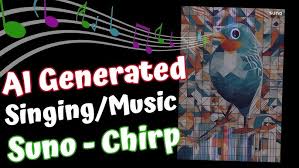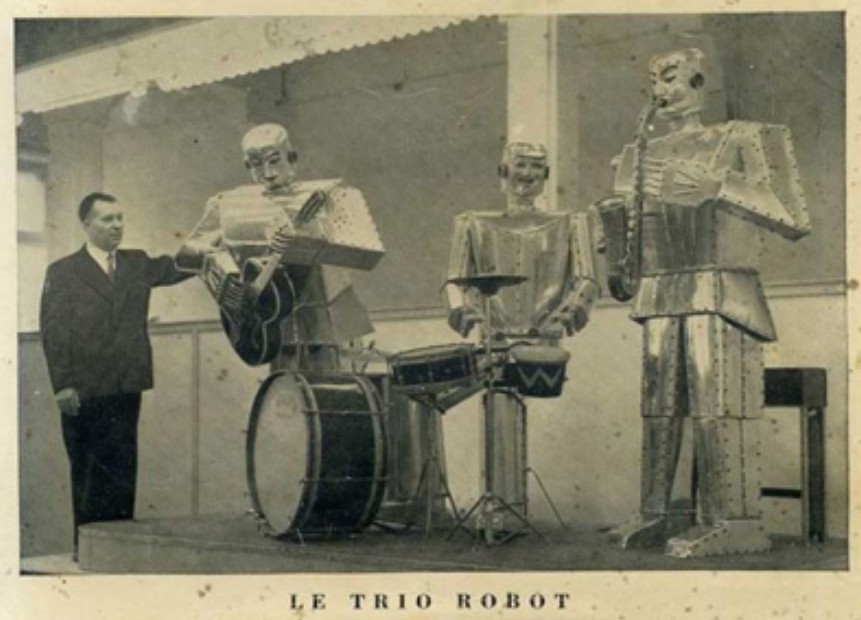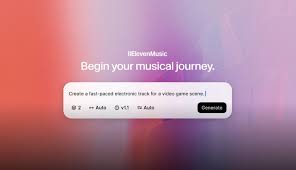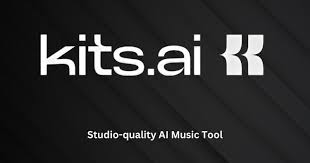AI music generators have exploded in popularity, giving creators unprecedented access to tools that once required full studios, production teams, and expensive licensing deals. But with options like Riffusion, Suno, and Udio dominating headlines, many creators and marketers are asking the same question:
Riffusion vs. Suno vs. Udio — which one fits your creative needs best?
In this in-depth comparison, we’ll explore the features, strengths, and limitations of these three cutting-edge AI music platforms so you can confidently choose the right tool for music production, content creation, or branded campaigns.

Quick Overview: What Each Tool Does Best
| Tool | Best For | Core Features |
|---|---|---|
| Riffusion | Loop-based music generation | Spectrogram-based, open-source, no vocals |
| Suno | Full songs with vocals and lyrics | Text-to-music, commercial licensing, fast output |
| Udio | Studio-quality songs with vocal layering | Prompt-to-music, advanced vocal blending, realism |
What Is Riffusion?
Riffusion is an open-source AI that generates audio by converting spectrograms — visual sound patterns — into playable music. Instead of producing notes or lyrics, Riffusion renders loopable, ambient or beat-driven tracks based on simple prompts.
Why Creators Use Riffusion:
Great for instrumental loops
Open-source and free to experiment with
Best for background music in games, indie projects, and DAWs
Highly customizable, especially for developers and tinkerers
But Riffusion does not generate vocals or lyrics, so it’s not ideal for full-track production. It’s more like a modular music engine than a one-click song generator.
What Is Suno?
Suno AI has become one of the most talked-about AI music tools of 2025, offering users the ability to generate complete songs — with vocals, instrumentation, and structure — just from a short prompt.
Whether you type “80s synth-pop breakup song” or “uplifting indie rock about friendship,” Suno delivers ready-to-use tracks in minutes.
Why Suno Stands Out:
End-to-end music generation with vocals and lyrics
Ideal for TikTok videos, podcast intros, or ads
Great for non-musicians
Offers a commercial-use license with Pro tier
Simple UI, no learning curve
The main downside? Less control over structure and mixing — Suno is built for speed and accessibility, not granular editing.
What Is Udio?
Udio (launched in 2024 by former Google DeepMind researchers) is currently the most sophisticated AI music generator when it comes to realism, vocal harmony, and high-fidelity production.
Udio allows you to generate full-length tracks from a text prompt, with multi-verse structure, layered vocals, and remarkably accurate genre matching.
Why Udio Is Gaining Momentum:
Studio-grade audio quality
Realistic lead vocals and multi-part harmonies
Wide prompt versatility (“dreamy folk”, “EDM drop”, “rap verses”)
Ideal for music producers, agencies, and power users
Allows detailed refinement of generated tracks
Udio is still in active development but is already outperforming many tools in naturalness of vocals and lyrical rhythm.
Riffusion vs. Suno vs. Udio: Detailed Feature Comparison
| Feature | Riffusion | Suno | Udio |
|---|---|---|---|
| Output Type | Loop-based audio | Full songs (vocals + music) | Full songs (multi-layered vocals) |
| Vocal Support | ? No | ? AI vocals + lyrics | ? Multi-vocal, lyric-rich |
| Customization Level | ??? High (but manual) | ?? Low (simple prompt-based) | ?? Medium-High (structure-aware) |
| Genre Coverage | Ambient, lo-fi, trap | Pop, hip-hop, indie, EDM | Rock, rap, jazz, cinematic, metal |
| User Skill Level | Intermediate+ (DAW friendly) | Beginner-friendly | Intermediate to advanced |
| Licensing Terms | Open-source, flexible use | Free for personal, Pro for biz | TBD (beta terms apply) |
| Cost | Free | Free + Pro plan (from $10/mo) | Currently free (pricing coming) |
Which One Should You Use?
Choose Riffusion If:
You’re a developer, sound designer, or DAW user
You want to create instrumental loops or ambient textures
You need open-source flexibility
Choose Suno If:
You’re a content creator, social media manager, or marketer
You want polished tracks quickly — with vocals
You’re okay with limited control in exchange for speed
Choose Udio If:
You’re a music professional, producer, or creative agency
You want high-quality songs for licensing, sync, or even pitching
You care about vocal quality and lyrical depth
Licensing and Commercial Use: Read the Fine Print
Riffusion: Royalty-free for most uses. As open-source, it depends how you host/deploy it.
Suno: Personal-use tracks under Free tier. Commercial use requires Pro or higher plan.
Udio: Still in beta. Commercial use likely to be restricted until official launch, so watch their terms closely.
Always double-check licensing before using AI-generated music in monetized content or client campaigns.
Frequently Asked Questions
Q: Can I use any of these tools for Spotify distribution?
Udio and Suno both create full songs that could potentially be distributed, but you’ll need the appropriate commercial license (especially with Suno). Riffusion outputs are better suited for background tracks or remixing.
Q: Which tool is best for YouTube creators?
Suno is currently the most YouTube-friendly — fast, polished, with vocals and hooks. Just make sure you’re using a Pro plan for monetized content.
Q: Do any of these tools support multi-language lyrics?
Udio and Suno have experimented with multi-language prompts, but results vary. English remains the most reliable language for lyrical accuracy.
Q: Can I remix AI music created from these platforms?
Yes — especially with Riffusion (ideal for loops). Just ensure remixing complies with the platform's licensing if you publish commercially.
Final Verdict: It’s Not Either/Or
You don’t have to choose just one.
Use Riffusion for experimentation, sound layering, and open-ended creativity
Use Suno for social content, ad jingles, and fast prototyping
Use Udio when quality and realism are non-negotiable
In fact, many creators combine them. Imagine generating a melody loop with Riffusion, a verse with Udio, and an outro hook with Suno. That’s the future of AI-assisted composition.
Learn more about AI MUSIC








